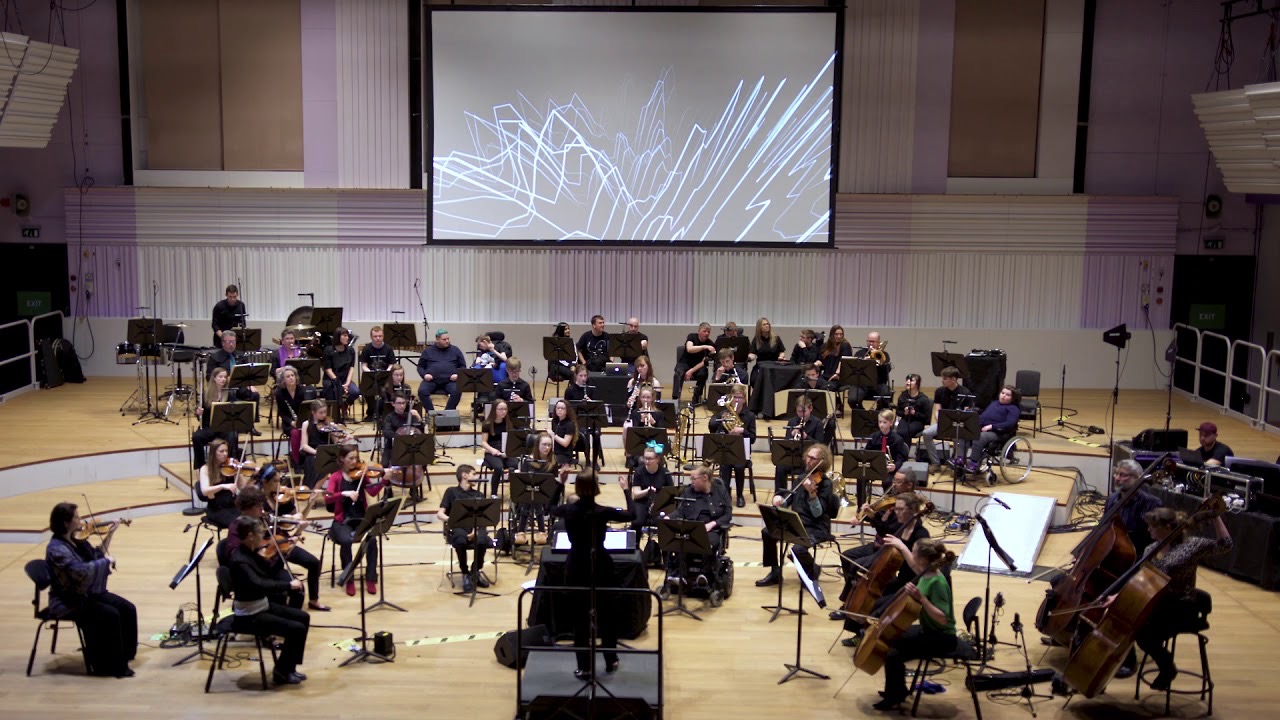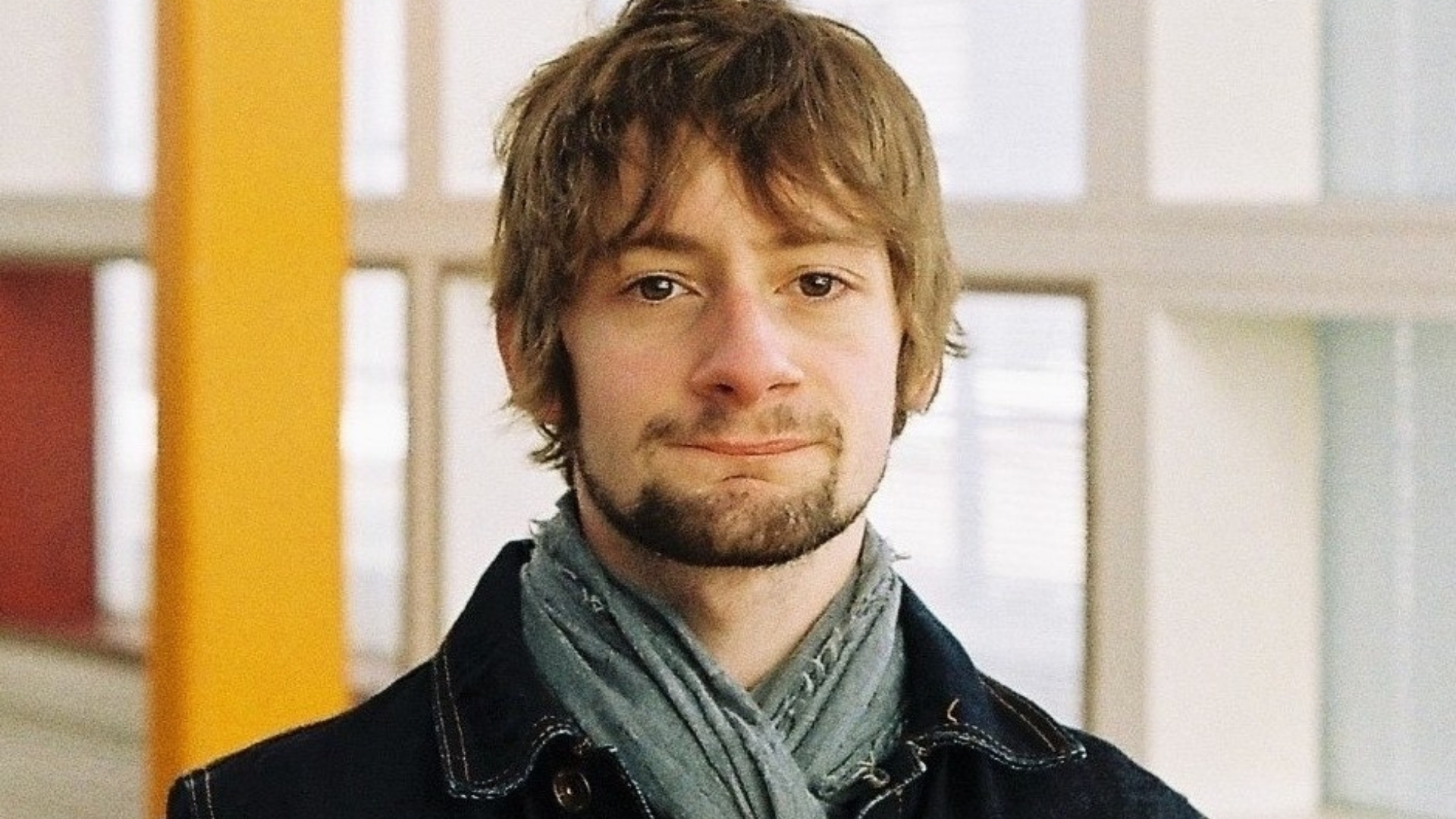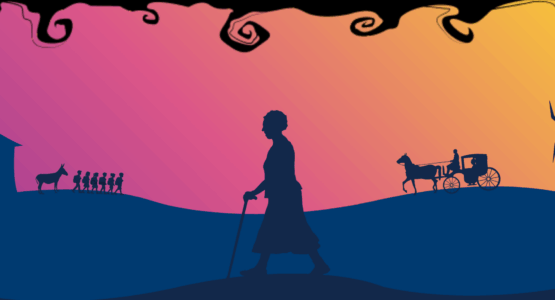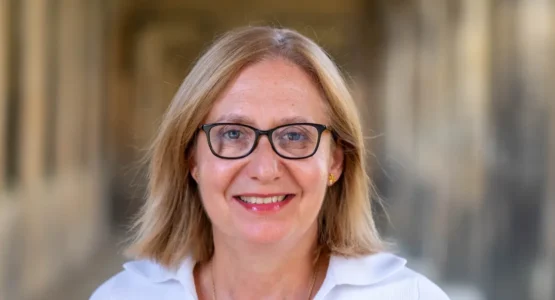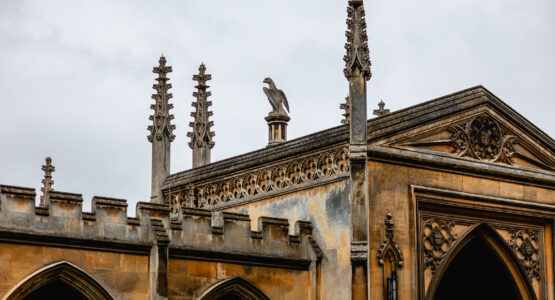Composer Oliver Vibrans explains the intent and process behind More Up, his 2020 Ivor Novello Award winning composition, which was written for the Able Orchestra, a totally inclusive ensemble of disabled and non-disabled musicians.
Inspiration behind the More Up composition.
The project originated about three years ago, when I was approached by Orchestras Live to write a piece for the Able Orchestra.
The Able Orchestra is a diverse ensemble comprising young disabled participants, who use digital technology to create and perform music alongside school-age music students around Grade 5 to 8 standard. The orchestra had previously performed concerts around the country, including one for BBC Proms, and this project was proposed as a collaboration between Able Orchestra, The Halle and BBC Philharmonic.
Before composing for them, I saw the Able Orchestra in action, performing an extant piece using adapted wheelchair controllers to generate electronic sounds. The piece Fantastical Worlds was then devised by the Able Orchestra through sound creation workshops, with the wheelchair controllers triggering pre-recorded elements of the music live.

I wanted to develop a new approach to bring the experience closer to performing live and to facilitate the most effective collaboration between the disabled participants and the professional musicians. Rather than triggering pre-made material, I wanted the Able Orchestra to use digital technology to perform the music in a more reactive manner, listening to the way they were contributing to the overall performance.
We achieved this by using the controllers as devices to manipulate effects in real time. We fed the live performances from the professionals through the effects controlled by the Able Orchestra, and I created a graphic score alongside conventional staff notation to indicate the ways in which the live sound should be affected. This allowed both professional orchestral musicians reading staff notation and the Able Orchestra using the graphic score to engage with the act of performance in the same way.
The piece originally had a different name, but during one of the workshops where I played an electronic approximation of the score, one of the participants described the music as ‘More up’ in comparison to Fantastical Worlds. This was the first objective feedback I’d had on the score, so I named the piece after it.
Writing for different performance mediums.
Concert music is a much more straightforward endeavour than writing music for theatre or screen. The journey from A to B is clear-cut and direct, as you only have a singular task: to create a piece of music.
With theatre you must satisfy the dramatic and aesthetic demands both of the writing and of the director’s vision. There are creative discussions to be had with movement directors and lighting and sound designers, and the music is one element of a larger artistic endeavour.
Working with other art forms allows you to explore varied musical styles and influences.
That said, the way that music reaches an audience in the context of a wider piece of work can be more diverse than what can be creatively expressed in the concert hall – and working with other art forms allows you to explore varied musical styles and influences.
Facing the social, political and health challenges of this year.
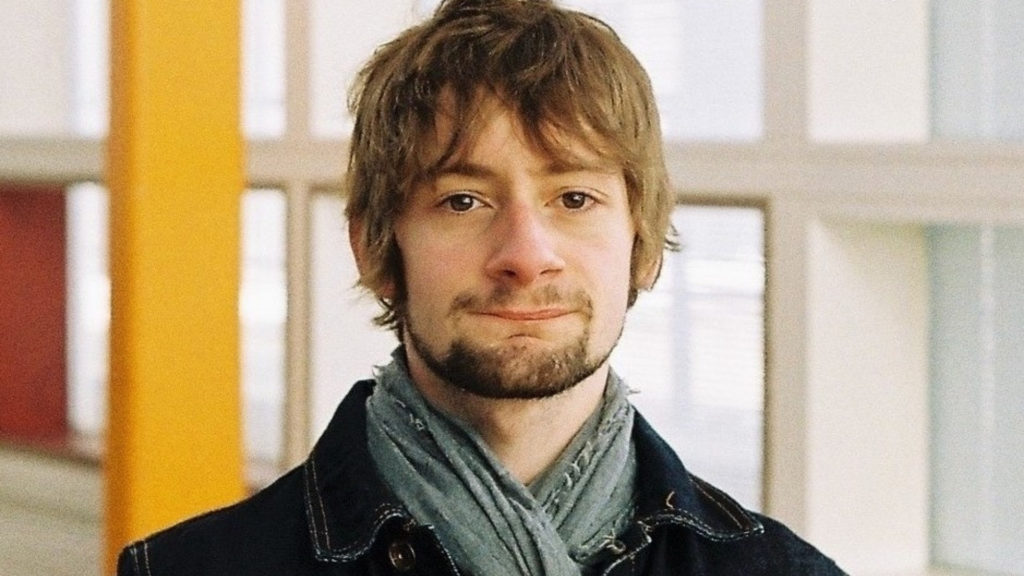
It has been said to me by other composers that writing music is a solitary endeavour and a form of lockdown in itself. So, in some respects, lockdown has not presented much of a change to my normal working practice. However, it has made me realise how important the time spent with other musicians and other creatives in a room can be.
Many theatre projects I had this year turned digital, and deadlines have become very soft. I was lucky to finally be in a room with actors at the London Academy of Music and Dramatic Art (LAMDA), where I have just scored Richard II. It was a deep joy to reconnect with the way a room full of other minds can influence your work.
Other compositions in the works.
I am currently working on a commission for the BBC Philharmonic airing on Radio 3. I am also finishing work on a binaural radio drama for Audible, plus an art installation for Stellar Projects.
The best bit of the job, and ways to relax and unwind.
I like handing in a piece and people liking it!
I’m currently living in Greenwich and enjoy the Thames pathway. I’ve also become addicted to the West Wing!
Tips for Johnian students wanting to be composers.
Music is often created electronically, and the composer produces the end product as well as writing it. It’s very important when working collaboratively to have an understanding of the production pipeline and the composer’s place in it to better adapt your practice.
Performance takes music from being an intellectual abstraction to being a living, breathing experience.
Certainly in concert music, but also in all parts of your practice, you never learn more than when you hand over your music for musicians to play, be they other students or experienced professionals.
Performance takes music from being an intellectual abstraction to being a living, breathing experience. It highlights the technical aspects of the piece, how musicians interpret what you’ve written, and how successfully your ideas translate.
Lastly, don’t become too wedded to one way of thinking about and creating music. I have never learned more about orchestration and arrangement than when I started to mix and master music. All music specialities are linked in some way, and you’ll be a more rounded musician if you’re open to understanding other people’s disciplines.
Find out more about previous and upcoming projects on Oliver’s website.
Written by
Composer Oliver Vibrans (2014) has written for the concert hall, theatre, film, art installations and radio. Himself a wheelchair user, Oliver composed More Up for the Able Orchestra, and in 2020 the composition won the Community and Participation Prize at The Ivors Composer Awards.

